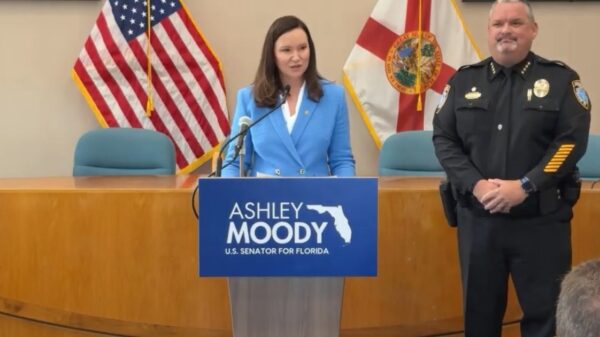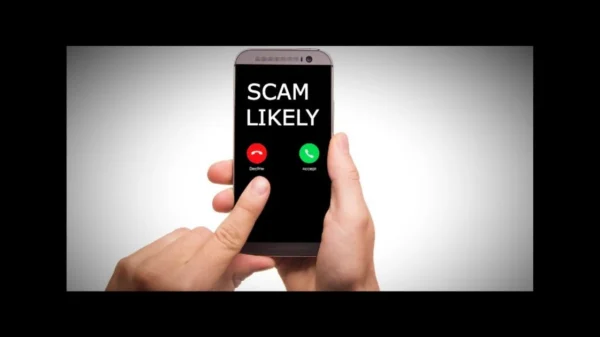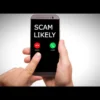Last week, Florida Attorney General Ashley Moody joined senior organizations to protect older Floridians from COVID-19 related scams.
Moody, the American Association of Retired Persons (AARP), Association of Mature American Citizens, American Seniors Association and the Florida Council on Aging met virtually towards the end of last week to discuss emerging scams designed to target older Floridians amid the COVID-19 pandemic.
“Seniors are uniquely vulnerable to COVID-19 and to scams designed to exploit the fear surrounding the pandemic to rip off Floridians. That is why we are working with the top senior groups in Florida to make sure older Floridians have the resources necessary to avoid falling prey to these fraudsters. I want to thank these groups for the work they are doing to stay on top of emerging scams and keep their members informed,” Moody said.
Some common COVID-19 related scams by category include: cyber scams, telephone and text messaging scams, counterfeit product offers, bogus door-to-door testing offers, offers to sell fake virus cures, and phony charity donation solicitations. Moody’s office offered the following tips for seniors:
Cyber Scams
Be wary of all emails claiming to be from the Centers for Disease Control and Prevention, World Health Organization and other healthcare organizations, offering to share information about the virus.
Take extra precaution to avoid spoofed or phony websites by only visiting websites with clearly distinguishable URL addresses. Scammers seek to exploit individuals by directing web traffic to similar, but falsely identified, website names where they can provide misinformation or attempt to gain consumers’ sensitive personal or financial information or finances in exchange for pandemic updates. Legitimate websites should display a padlock sign in the URL address bar indicating the site is secure.
Be on the lookout for emails asking for the verification of personal data, including Medicare or Medicaid information, in exchange for receiving economic stimulus funds or other benefits from the government. Government agencies are not sending out emails asking for sensitive personal information in order to receive government funds or other official pandemic financial relief.
Telephone and Text Messaging Scams
Even before the crisis, robocalls were a continuing problem for many Floridians. Now that more Floridians than ever are working remotely and are home and responding to an increasing volume of phone calls, some may find it difficult to ignore calls from unknown numbers.
If anyone receives a robocall, hang up! Do not press any numbers or characters on your phone. Scammers are calling with offers involving everything from COVID-19 treatments and cures to work-from-home schemes. The recording might say that pressing a number will direct the recipient of the call to a live operator or even remove the recipient from the robocall list, but don’t buy it. Pressing any button on the phone will likely lead to more robocalls.
Like email phishing scams, text messages from unknown sources may offer hyperlinks to what appears to be automated pandemic updates or interactive infection maps. These are just two examples of ways scammers can install malware on mobile electronic devices, putting the recipient of the message at increased risk for identity theft and financial exploitation.
Counterfeit Product Offers and High Demand Goods
Ignore offers for COVID-19 vaccinations and home test kits. Currently, no vaccines, pills, potions, lotions, medications or other prescription or over-the-counter products are available to treat or cure the novel coronavirus. This applies to offers made online, in stores, by electronic message, or over the phone. The U.S. Food and Drug Administration has not authorized any home test kits for COVID-19.
As many have seen firsthand, some consumer products are in extreme demand. Household cleaning products, sanitizers, personal hygiene products, and health and medical supplies may be offered via online or in-person sellers aiming to capitalize on the scarcity of these products.
When buying online, be sure to research the seller by searching online for the person or company’s name, phone number, and email address, plus words like review, complaint, or scam. If everything checks out, pay by credit card as opposed to debit, and keep a record of your transaction. Bring any concerns about the pricing of essential commodities to the attention of the Attorney General’s Office by contacting the Price Gouging Hotline at 1-(866)-9NO-SCAM, visiting MyFloridaLegal.com or downloading the NO SCAM smartphone app.
Bogus Door-to-Door Tests and Fake Virus-related Products
To ensure personal safety, do not answer the door or allow inside any unknown individuals or business representatives moving door-to-door offering to sell consumer products, medical kits, vaccines, cures, whole-home sanitization or in-person COVID-19 testing. Promptly contact local law enforcement to report such activities and, if it can be done safely, alert neighbors, particularly seniors, of these concerning door-to-door offers.
Phony Charities and Donation Requests
Coming together in a time of need and extreme hardship is testament to the Florida way of life; however, when disasters and life-changing events such as the current pandemic occur, be cautious as to where donations are going.
Unfortunately, scammers take advantage of good will and generosity by creating fictitious charitable organizations and seeking donations that never go to the fake charity’s stated cause and take money away from those in need.
Be sure to research where a charitable donation is going. Visit the charities portion of ConsumerResources.org for guidance on charitable giving or CharityNavigator.org.
When giving, always do so by credit card or other secure payment processor. Never give via gift card, wire transfer or other anonymous electronic payment process.
Remember, misinformation and rumors create panic and disorder. Always fact-check sources, messages and businesses before acting. Never provide personal information or money to strangers or unexpected salespeople.



















